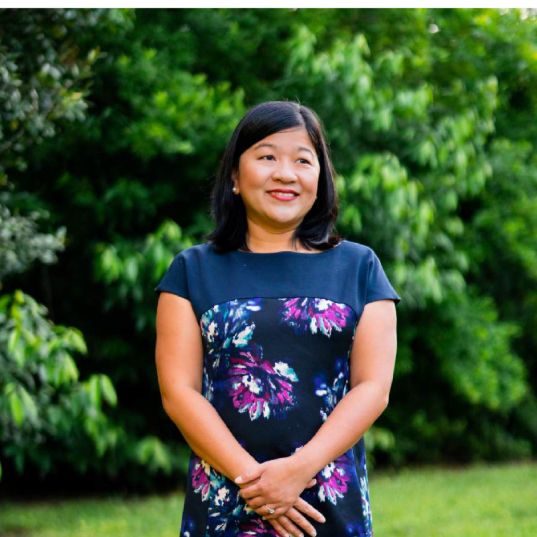Exploring Treatment Choices for Social Anxiety in Tampa Bay
Exploring treatment choices for social anxiety in Tampa Bay can include in-person sessions, teletherapy, individual care, and supportive group therapy. Many providers offer cognitive behavioral therapy (CBT), exposure-based methods, and skills groups tailored to social situations. In-person options may be convenient if you’re near South Tampa, Westshore, Seminole Heights, or downtown St. Petersburg, while teletherapy can help if you commute over the Howard Frankland Bridge or Courtney Campbell Causeway, where traffic often backs up. Group therapy is commonly available near campuses like USF and the University of Tampa, as well as community centers in Clearwater and Brandon. Telehealth can also ease access during summer storms or busy tourist seasons, and bus routes via HART, PSTA, and the TECO Line Streetcar can support those without a car.
MiResource helps you narrow choices quickly by letting you filter providers by therapy approach (such as CBT, exposure therapy, or ACT), insurance accepted, and real-time availability, including evenings and weekends. You can also filter for teletherapy, in-person offices near your neighborhood, and language or cultural preferences. This makes it easier to find an individual therapist for one-on-one work or a local group that fits your schedule and comfort level. Whether you’re in Carrollwood, New Tampa, Pinellas Park, or Ybor City, the platform guides you to options that match your needs and commute. With clear filters and practical details, you can focus on getting support rather than navigating logistics.
Local Programs and Community Partners
Across Tampa Bay, community groups and nonprofits offer welcoming spaces to practice connection at your own pace.
NAMI Hillsborough
and
NAMI Pinellas
host free, peer-led support groups—including options that are friendly to people working through social anxiety—often near Downtown Tampa and along the Tampa Riverwalk. The
Crisis Center of Tampa Bay
provides workshops, short-term counseling, and 24/7 navigation to local resources, while
2-1-1 Tampa Bay Cares
connects residents in Seminole Heights, Westshore, and Brandon to anxiety-friendly groups and classes close to home. Public libraries from
Ybor City
to Hyde Park and the
St. Petersburg Library System
regularly feature low-pressure wellness talks and mindfulness sessions that can ease the first steps into social settings, complementing MiResource’s therapist directory for Social Anxiety therapy in Tampa Bay.
On the Pinellas side,
Suncoast Center
and
PEMHS (Personal Enrichment through Mental Health Services)
offer community-based mental health programs and referrals, with locations convenient to the St. Pete Pier and Central Arts District. Peer-led meetups and social skills practice circles meet in relaxed settings like Curtis Hixon Waterfront Park and coffee shops near USF, helping people build confidence between therapy sessions. Many universities and community centers host anxiety management workshops open to the public, and faith- and culture-based nonprofits in Clearwater and Largo provide small-group gatherings that emphasize safety and gradual exposure. Together, these neighborhood supports pair seamlessly with MiResource’s curated therapists to create a personalized path for managing Social Anxiety across Tampa Bay.
Urgent Help for Social Anxiety in Tampa Bay
If you’re in a Social Anxiety crisis, call or text 988 for the Suicide & Crisis Lifeline, or dial 911 if you’re in immediate danger. For local support, dial 211 to reach the Crisis Center of Tampa Bay (Hillsborough) or 211 Tampa Bay Cares (Pinellas/Pasco), which can connect you to counselors and dispatch Mobile Response Teams. You can also go to an emergency room: Tampa General Hospital (813-844-7000), St. Joseph’s Hospital—Tampa (813-870-4000), AdventHealth Tampa (813-971-6000), or Bayfront Health St. Petersburg (727-823-1234). If you need same-day, non-emergency care, visit BayCare Urgent Care locations across Tampa Bay (855-404-3627) or the nearest urgent care clinic. Stay on the line and be clear that you’re experiencing severe social anxiety and need immediate support.
Key Insights Into Social Anxiety
Social anxiety
is a strong fear of being judged or embarrassed in social situations, from speaking up in class to meeting new people. Common symptoms include worry before events, a racing heart, sweating, blushing, and avoiding gatherings—even in everyday Tampa Bay settings like festivals, workplaces, or campus life. It’s more than shyness; it can affect
relationships
, school, and work. Understanding it is the first step toward finding the right support and feeling more at ease in your community.
Spotting Potential Warning Signs
Noticing changes early can make a big difference, and you’re not alone—many people in Tampa Bay feel this way, too. If social situations have started to feel overwhelming, it’s okay to reach out for support and explore what might help you feel more at ease.
- Intense worry about being judged or embarrassed, even before simple plans like a meetup or call
- Avoiding social events, classes, meetings, or errands because they feel too stressful
- Physical symptoms in social settings, like a racing heart, blushing, sweating, shaky hands, or an upset stomach
- Replaying conversations afterward and feeling stuck on what you “should have” said or done
- Needing a lot of reassurance about how you came across or fearing you made a bad impression
- Finding it hard to speak up, make eye contact, or start conversations, even with people you know
- Feeling drained or needing a long time to recover after social interactions
What Contributes to Social Anxiety
Social Anxiety is common in Tampa Bay and affects people of all ages and backgrounds. It arises from a mix of factors, not from a flaw or personal weakness. If you’re struggling, it’s understandable—and you’re not alone. With the right support, many people feel better over time.
- Biological
- Family history of anxiety or
depression
- Differences in brain chemistry and sensitivity to stress
- Temperament that’s naturally more cautious or shy
- Psychological
- Fear of being judged or embarrassed
- Perfectionism and self-criticism
- Habit of overthinking past or future social interactions
- Environmental
- Past bullying, teasing, or social rejection
- Critical, shaming, or overprotective environments
- Stressful life changes or limited social support
How Social Anxiety Shapes Daily Life
Social anxiety can make everyday Tampa Bay moments—like speaking up at work, meeting friends on the Riverwalk, or attending a Bulls game—feel overwhelming. You might avoid crowded beaches or local events, worry for hours before a simple errand, or replay conversations after a class or meeting. This stress can chip away at confidence, energy, and connections. With the right support, you can build skills to face social situations with more ease and reclaim the activities you enjoy around Tampa Bay.
- Work and career
- School and campus life
- Family interactions
- Friendships and dating
- Social and community events
- Physical health and sleep
- Mood, stress, and
self-esteem
Effective Treatments for Social Anxiety
Living with social anxiety can feel isolating, but effective, evidence-based care is available in Tampa Bay. Proven therapies help reduce fear, build confidence, and make social situations more manageable. With the right support, many people experience lasting improvement—taking the first step to care can open real possibilities for change.
- Cognitive Behavioral Therapy (CBT): Identifies and reshapes unhelpful thoughts and behaviors that fuel anxiety; strong clinical evidence for social anxiety.
- Exposure Therapy: Gradual, guided practice facing feared social situations to reduce avoidance and build confidence.
- Acceptance and Commitment Therapy (ACT): Teaches mindfulness and values-based action to handle anxious thoughts without letting them control behavior.
- SSRIs/SNRIs (Medication): Antidepressants like sertraline or venlafaxine can reduce social anxiety symptoms; best when monitored by a prescriber.
- Group Therapy: Therapist-led groups provide structured practice of social skills in a supportive setting, improving confidence and connection.
- Social Skills Training: Targeted coaching on conversation, assertiveness, and nonverbal cues to enhance real-life interactions.
Quick Answers for Social Anxiety Therapy in Tampa Bay
1. Can Social Anxiety happen to anyone?
Social anxiety can affect people of any age, gender, or background, and many in Tampa Bay experience it. It doesn’t mean there’s something wrong with you—this is a common, treatable condition. Certain factors may raise risk, such as family history, temperament, past bullying or criticism, or ongoing stress. With understanding and support, you can take steps at your own pace toward relief.
2. Is Social Anxiety just stress or something more serious?
Everyday stress comes and goes, but Social Anxiety involves an ongoing, intense fear of being judged in social situations. If your worry lasts for months, leads to avoidance, causes panic-like symptoms, or interferes with work, school, or relationships, it may be more than temporary stress. Professional help is effective—therapies like CBT and exposure, sometimes with medication, work well. Support and treatment options are available throughout Tampa Bay.
3. What are some misconceptions about Social Anxiety?
Social anxiety isn’t just shyness—it’s a real, treatable mental health condition that can affect everyday life, including work, school, and relationships in Tampa Bay. It also doesn’t mean someone is antisocial or unfriendly; many people with social anxiety deeply value connection but feel overwhelmed by fear of judgment. You can’t just “snap out of it,” but evidence-based treatments like CBT, skills groups, and sometimes medication can make a big difference. Help is available in Tampa Bay, and seeking support is a strong, positive step.
4. Can Social Anxiety improve without treatment?
Yes, some people notice social anxiety ebbs with time or life changes, but it often lingers or returns. Working with a therapist in Tampa Bay can speed progress, reduce distress, and build confidence. Professional support also lowers the risk of relapse and teaches practical, lasting coping skills for real-life social situations. You don’t have to do this alone—effective help is available locally.
5. How do I talk about my Social Anxiety with family or friends?
You can start small by naming what you’re experiencing and what helps: “I’m getting help for Social Anxiety, and it would mean a lot if you could be patient when I need quiet time.” Set clear boundaries and requests, like “I’d appreciate support by giving me a heads-up before plans or letting me sit out group introductions.” Share a short article or video about Social Anxiety and offer local options in Tampa Bay—MiResource listings, NAMI Hillsborough/Pinellas support groups, or USF Counseling Center—so they understand and can walk alongside you. You might add, “If I leave early or stay quiet, it’s not about you; it’s me managing anxiety,” which keeps the focus supportive and reduces pressure.
6. Who is qualified to diagnose Social Anxiety in Tampa Bay?
In Tampa Bay, Social Anxiety can be diagnosed by
psychiatrists
, clinical psychologists, psychiatric nurse practitioners, and licensed therapists such as LMHCs, LCSWs, and LMFTs; primary care physicians can also diagnose and refer for specialty care. MiResource only lists qualified Tampa Bay providers with active licenses who are vetted to deliver accurate diagnoses and safe treatment.
7. What usually happens in a first therapy session for Social Anxiety?
In your first session for Social Anxiety in Tampa Bay, your therapist will start with simple introductions and explain what to expect. You’ll share a bit about your background and what brings you in, at a pace that feels comfortable. Together, you’ll talk about specific situations that feel stressful and how Social Anxiety shows up in your life. You and your therapist will then set clear, manageable goals and outline next steps so you leave with a calm, focused plan.













